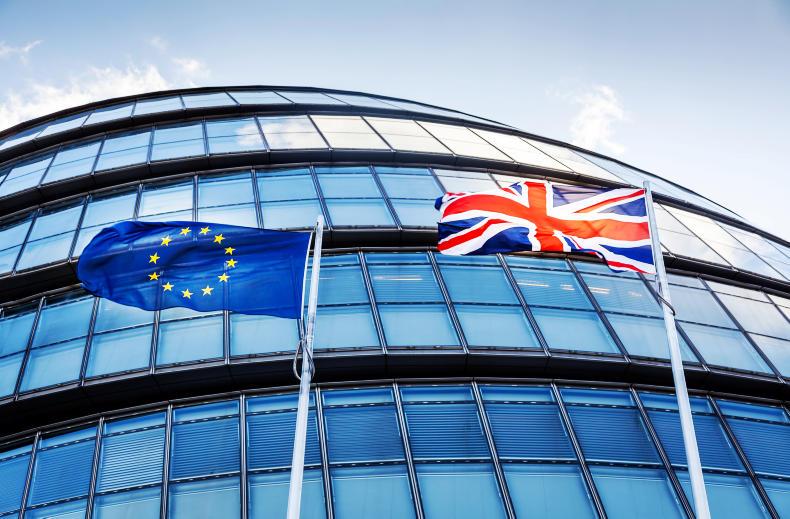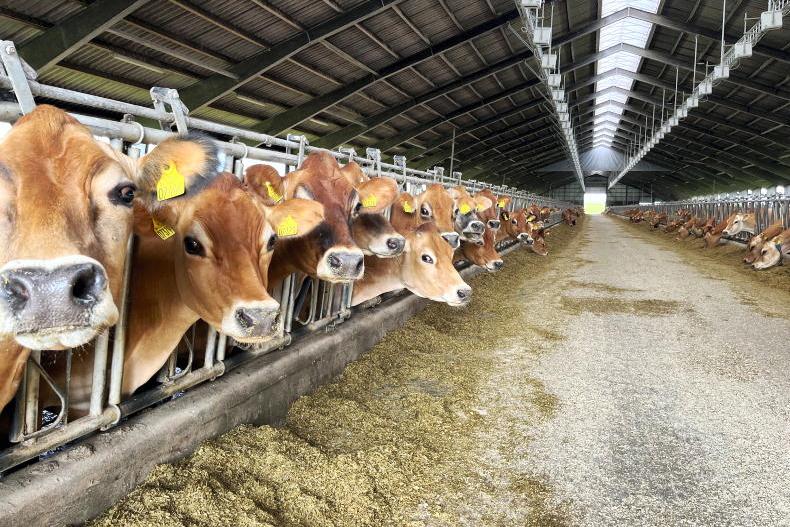By this time next weekend, we were supposed to have the EU reduced to 27 member states, with the UK departed.
Yet, with just days to go, people have come to expect that another extension of some sort will be worked out, as the UK gets focused on a general election in the middle of the Christmas shopping season.
So far, it seems like the UK prime minister is a more flamboyant version of his predecessor, in that he has made a deal with Brussels but cannot sell it in parliament.
For people with an interest in politics, it is gripping political drama, while the rest of the population in the UK, Ireland and the rest of the EU are fed up and want conclusion and certainty.
Certainty
Certainty is something that farmers haven’t had since the referendum result in 2016 and there is no indication that it will come any time soon.
Another extension is, of course, better than a no-deal Brexit, but only in that it prevents cliff-edge chaos.
Market uncertainty prevails and is likely to continue until there is more certainty and consumer spending on discretionary products, of which beef and sheep meat are examples, can be resorted.
Border solution
The prime minister’s latest deal to solve the issues with the Irish border have given some comfort to farmers, in that business can continue irrespective of the outcome on talks on the future trading relationship.
However, the detail still has to be revealed and there is growing concern, particularly in the North, that the maintenance of two customs relationships, one with the EU and the other as part of the UK, will be a bureaucratic nightmare.
Businesses haven’t any down time for checks built into their work programmes
The problem for farmers, industry and indeed the wider retail and food service distribution business is that supply chains are complex and very tightly timed.
Northern Ireland, by virtue of being part of the UK on the island of Ireland, is in the unique position in that its commerce with the rest of the UK involves either a boat or plane.
There is a certain logic in undertaking any checks required at these natural funnels, but the problem is that businesses haven’t any down time for checks built into their work programmes.
This is a particular issue for shelf life on fresh foods. By virtue of being at the end of the line for British-based retailers, shelf life is already reduced and any further delay, as well as increasing distribution cost, reduces shelf life further.
Future British trading relationships
South of the border, there will also be relief, as the likelihood of a no-deal Brexit diminishes.
Assuming it is either extension or transition, business can continue as normal, but the difficulty will return when the shape of a future trading relationship between the EU and UK takes shape.
This is supposed to happen before the end of 2020, but few expect that any meaningful deal will be concluded in that time. The best hope is that the transition period, as this is described, is also extended indefinitely.
At the end, the shape of the EU-UK deal will be dictated by UK ambitions to make deals with other third countries.
If this was to include a deal with the US, for example, that gave access for hormone beef and chlorine-washed chicken, then the divergence from the EU would mean that any EU deal with the UK would be less comprehensive involving more checks and controls.
The biggest concern for farmers in both Ireland and the UK is what level of access the UK will give for agri produce, as the more access that is given, the greater the devaluation of the UK market will be for farmers.
Read more
Clarity required on Brexit deal
Brexit outcome dictated by future trade deal
By this time next weekend, we were supposed to have the EU reduced to 27 member states, with the UK departed.
Yet, with just days to go, people have come to expect that another extension of some sort will be worked out, as the UK gets focused on a general election in the middle of the Christmas shopping season.
So far, it seems like the UK prime minister is a more flamboyant version of his predecessor, in that he has made a deal with Brussels but cannot sell it in parliament.
For people with an interest in politics, it is gripping political drama, while the rest of the population in the UK, Ireland and the rest of the EU are fed up and want conclusion and certainty.
Certainty
Certainty is something that farmers haven’t had since the referendum result in 2016 and there is no indication that it will come any time soon.
Another extension is, of course, better than a no-deal Brexit, but only in that it prevents cliff-edge chaos.
Market uncertainty prevails and is likely to continue until there is more certainty and consumer spending on discretionary products, of which beef and sheep meat are examples, can be resorted.
Border solution
The prime minister’s latest deal to solve the issues with the Irish border have given some comfort to farmers, in that business can continue irrespective of the outcome on talks on the future trading relationship.
However, the detail still has to be revealed and there is growing concern, particularly in the North, that the maintenance of two customs relationships, one with the EU and the other as part of the UK, will be a bureaucratic nightmare.
Businesses haven’t any down time for checks built into their work programmes
The problem for farmers, industry and indeed the wider retail and food service distribution business is that supply chains are complex and very tightly timed.
Northern Ireland, by virtue of being part of the UK on the island of Ireland, is in the unique position in that its commerce with the rest of the UK involves either a boat or plane.
There is a certain logic in undertaking any checks required at these natural funnels, but the problem is that businesses haven’t any down time for checks built into their work programmes.
This is a particular issue for shelf life on fresh foods. By virtue of being at the end of the line for British-based retailers, shelf life is already reduced and any further delay, as well as increasing distribution cost, reduces shelf life further.
Future British trading relationships
South of the border, there will also be relief, as the likelihood of a no-deal Brexit diminishes.
Assuming it is either extension or transition, business can continue as normal, but the difficulty will return when the shape of a future trading relationship between the EU and UK takes shape.
This is supposed to happen before the end of 2020, but few expect that any meaningful deal will be concluded in that time. The best hope is that the transition period, as this is described, is also extended indefinitely.
At the end, the shape of the EU-UK deal will be dictated by UK ambitions to make deals with other third countries.
If this was to include a deal with the US, for example, that gave access for hormone beef and chlorine-washed chicken, then the divergence from the EU would mean that any EU deal with the UK would be less comprehensive involving more checks and controls.
The biggest concern for farmers in both Ireland and the UK is what level of access the UK will give for agri produce, as the more access that is given, the greater the devaluation of the UK market will be for farmers.
Read more
Clarity required on Brexit deal
Brexit outcome dictated by future trade deal









SHARING OPTIONS